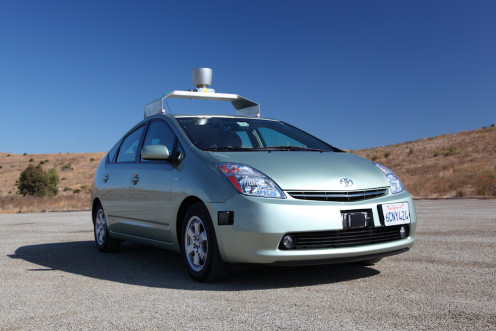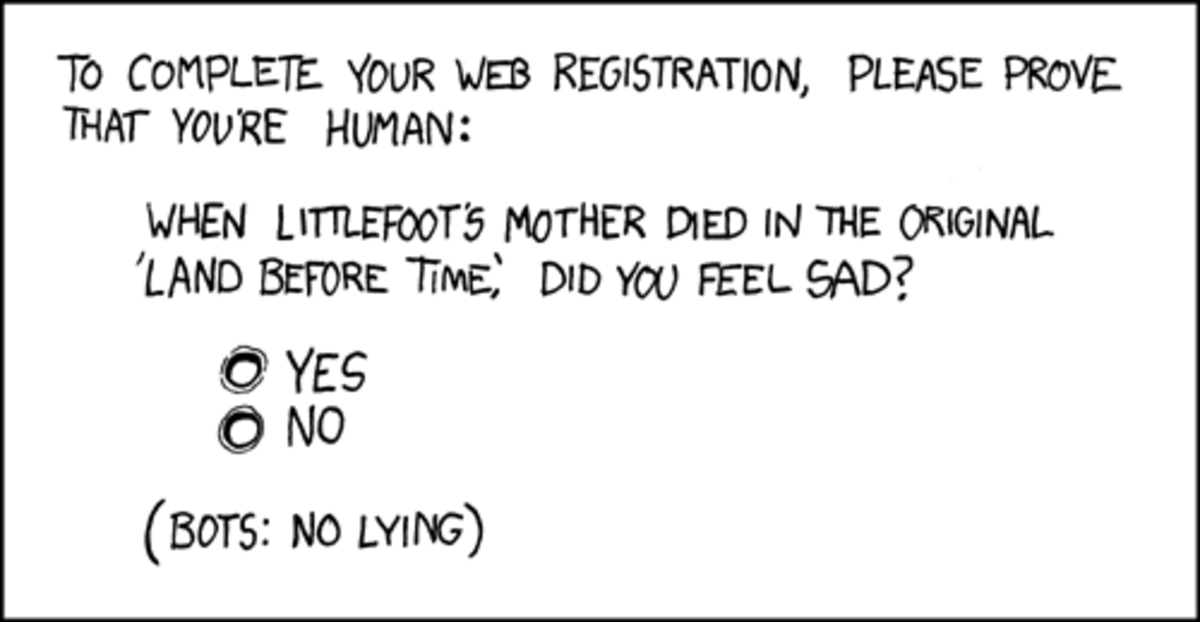Google take the wheel?

Bad things happen to good systems
Way back in 1998 NASA launched the Mars Climate Orbiter. After one year of space travel, earthbound computers transmitted instructions for nudging into the Martian atmosphere and establishing orbit. Unfortunately, English units of measure were transmitted while metric units were expected. The spacecraft entered Martian airspace at an incorrect angle and vanished. Engineers assume that it burned to a crisp.
Dr. Edward Weller, NASA's Associate Administrator for Space Science, observed that "People sometimes make errors."1
NASA hires the same smart people as Google.

Google wants to watch you drive
A veritable plethora of inexpensive data-gathering hardware will help Google decide how your car should go. Even as your eyes sag shut, tireless computers accumulate input in 'real-time.' That's a good thing, probably.
- Lidar: a relatively simple sensor paints the area surrounding your vehicle and collects the reflected energy. This data can be used to generate a rather impressive impression of what's going on nearby (about 50 feet). Hopefully the lidar beamed from one vehicle is not misinterpreted by a second vehicle. Look for a little device on top of the vehicle with an unobstructed 360 degree view and be very careful entering a McDonald's drive-through.
- GPS: it works for your Garmin, mostly. There's no reason that Google can't tap into the same technology to contrive a reasonable estimate of where your vehicle is, what direction it's traveling, and how fast it's moving.
- Gyroscope: if the GPS fails or you drive into a New York City skyscraper canyon, expect space-age gyroscopes combined with wheel speed sensors to save the day.
GM thinks your car will never crash
Mary Barra, then a Senior Vice President of Global Product Development for General Motors, told us this:
"Autonomous-driving technology will one day allow us to engineer cars that don't crash, which will fundamentally change the way we design our vehicles." 2
Fortune Magazine suggests that Ms. Barra could someday become the CEO of General Motors.3
Ignore the warning light: everyone does it
Autonomous vehicles will need to interface with software controlling the engine. What will a Google Driverless Car do when the manufacturer's software detects a malfunction?
Humans typically ignore it, at least in the near-term.
You're autonomously 'driving' through Chicago at 3AM... your Check Engine light pops. Code P1351 has been logged. If you're riding in an Audi or a Volkswagen, your computer thinks there might be an issue with the camshaft position (CMP) sensor. The manufacturer's solution is to ignore the warning and have a mechanic erase the code later. I looked it up. It's true.
What will a Google car do? Might you find yourself involuntarily parked on the shoulder of the Eisenhower Expressway overlooking the South Side?
The lesser of two evils
You're riding with Google through a subdivision. Obviously your autonomous car maintains a safe legal speed. On the left, a family pushes a baby carriage along the sidewalk. On the right is an 100 year-old unyielding oak tree. Oncoming traffic moves at a safe speed but is heavy.
A dog darts into your path, chased by a frantic child. Physics take over. Collision is unavoidable.
What does the computerized car do? Does Google elect to hit the dog, swerve into the tree, slam on the brakes, or try to dodge the baby carriage? In the aftermath, lawsuits will be filed. Who is liable: Google, you, your insurance company, or the government that approved self-driving cars?
Flag you down?
Google is driving you to work. On a 2-lane county road there's a tree down. Your lane is blocked but the oncoming lane is clear. A single flagger uses his orange banner to control alternating traffic. He's also talking to his sweetie-pie on his cell phone because, well, he's a government employee. When it's your turn he looks at you and waves his flag in the universal 'get going' signal. He then turns his head, looks into the oncoming lane, and deploys the 'stop' signal to keep those vehicles at bay.
Assuming that Google can understand what the flagger is 'saying', how can software and hardware determine human intent? How will your car decide to stay or go?
The plot thickens
Assume that Google software/hardware can indeed recognize a roadside flagger and stop your vehicle safely. Assume also that Google differentiates between a 'STOP' flagger and a 'slow down' flagger. It won't be long before derelicts and frat pledges stand along major highways with handmade orange flags, waving down rush hour traffic. Can Google detect intent?
A free ride to Pittsburgh
Your Significant Other has discovered your hidden cache of Star Trek memorabilia and wants to end your relationship. To make her intentions perfectly clear she turns on your Driverless Car, punches in the coordinates for Pittsburgh, and clicks the Go button.
Does the car drive itself to Pennsylvania?
Assume that Google can 'detect' a human person in the driver's seat and refuses to get going. Your SO has a graduate degree in Human Factors Engineering. She neatly stacks 150 pounds of potting soil on the driver's seat, clicks the seat belt closed, then presses the Go button. Google steadfastly refuses to take the wheel because there's no body heat: the potting soil is room temperature. Undaunted, your SO microwaves a burrito, wraps it in a Green Bay Backers knit hat, and stacks it on the potting soil. She has created a reasonable analog for a human driver. It has weight and it gives off a little warmth. What will Google do?
Perhaps your SO simply starts the car, weighs down the driver's seat, and cranks the climate control system to 98 degrees. Google now 'knows' that there's a heat source in the vehicle, but has no way to determine the origin. It cannot differentiate between body heat and radiator heat. Will the car cruise to Pittsburgh all by itself?
Can Google recognize you?
It's 10 degrees below zero and you're ready for work. You bundle up and trudge out into the driveway because your family has filled your garage with bicycles and gardening equipment. Google refuses to operate your car: you are so well insulated that no body heat can be detected by the high-tech sensors in the passenger compartment. Google thinks you may be potting soil.
Will you have to remove your gloves, hat, and Green Bay Packers scarf in order to convince your car to shift into Drive? When you re-clothe yourself, will Google assume you jumped out the window and react by shutting down the vehicle?
Will Google keep you legal or safe?
You're letting Google drive you to Gatlinburg... all 3 lanes of I75 south through Kentucky are flowing at 80 mph despite the posted speed limit of 65.
What will Google computers do? Slowing down to space-normal speed becomes inherently dangerous. Should the car keep you safe while simultaneously abrogating the speed limit?
Perhaps the on-board computer systems will insist on a maintaining a legal speed as frantic semi-trucks stack up behind you and your digital traveling companion. It is unlikely that even the highest technology will recognize a one-finger wave. Be careful entering the next McDonald's drive-through.
How well does your smartphone work?
Smart people employed by Google designed the Android smartphone software. My unit reboots when I play Scramble with Friends more than 3 times. Will Google recruit even smarter people to make my car go?
Hopefully the autonomous vehicle developers, engineers, programmers, testers, and philosophers can see into the future.
References
1 Mars Climate Orbiter Official Website: http://mars.jpl.nasa.gov/msp98/orbiter/
2 Car and Driver Magazine, August, 2013
3 http://management.fortune.cnn.com/2012/12/17/gm-mary-barra/



